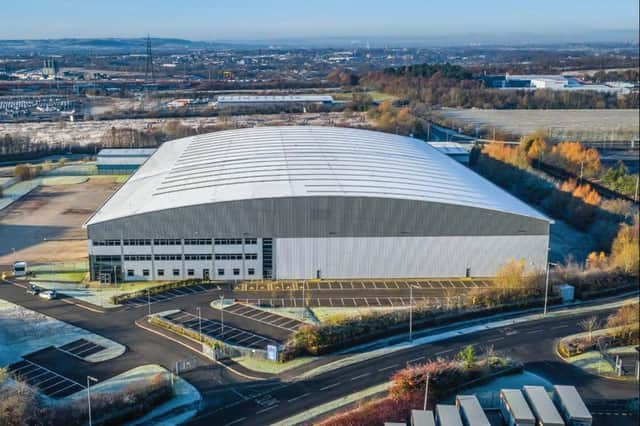Scotland facing 'urgent' need for speculative industrial and logistics development


The warning came as new analysis by property consultancy Colliers highlighted strong demand for industrial space from companies across a range of sectors, partly as a result of changes brought about by the pandemic.
The firm pointed to the healthcare and medical sectors, where large supplies of equipment have had to be made easily accessible to be moved around the country quickly.
Advertisement
Hide AdAdvertisement
Hide AdA surge in online shopping as a result of lockdown measures has led to a jump in demand for storage, distribution and parcel delivery services, also adding to the need for additional space. Other sectors such as food and drink, engineering and manufacturing are also driving demand for industrial accommodation, Colliers noted.
The firm expects average rents to grow at a “moderate” pace this year on the back of tight availability and robust occupier activity.
Iain Davidson, director of industrial and logistics at Colliers in Glasgow, said: “Coronavirus has had a devastating impact on many parts of the economy, but it has also driven up demand for industrial space across Scotland, which was already strong before the pandemic.
“I see leasing activity continuing to increase this year, as companies look to build more resilience into their supply chains.
“Businesses are adopting more localised strategies, while increasing capacity and efficiency. There is therefore an urgent need for speculative development in Scotland if this demand is to be met.”
He added: “The development market now appears to be responding to robust occupational demand, but it will be at least 2022 before most proposed schemes come on stream. Even then, in our opinion, the pipeline being suggested will be insufficient to meet current and projected demand.”
In the east of Scotland, the speculative development segment of the market has taken a slightly different path than the west, the research noted.
Lewis Pentland, associate director of industrial and logistics at Colliers in Edinburgh, said: “While there has been some speculative development activity in the east, this has been limited to smaller multi-let estates.
Advertisement
Hide AdAdvertisement
Hide Ad“We are now witnessing a shortage from 20,000 square feet upwards. As a result, we are seeing rental growth in existing stock, with design and builds likely to feature more prominently over the coming months.”
A report last week from fellow property advisor CBRE noted that Scotland’s industrial and logistics sector had seen solid take-up figures despite ongoing economic challenges.
Releasing its market overview on the industrial and logistics sector across Aberdeen, Edinburgh and Glasgow in 2020, the firm predicted significant growth this year, though development is “urgently” required to meet demand.
David Reid, associate director in CBRE Scotland’s industrial and logistics team, said: “The year ahead is anticipated to bring occupier focus on building more resilient supply chains, increasing capacity and diversifying suppliers to safeguard against future disruptions.
“With Covid accelerating online demand for retail, we also predict increased demand for last mile logistics properties as retailers seek to move closer to their customers. This strong demand, coupled with a shortage of available land, should result in funding being made available for speculative development.”
A message from the Editor:
Thank you for reading this article. We’re more reliant on your support than ever as the shift in consumer habits brought about by coronavirus impacts our advertisers. If you haven’t already, please consider supporting our trusted, fact-checked journalism by taking out a digital subscription: www.scotsman.com/subscriptions
Comments
Want to join the conversation? Please or to comment on this article.